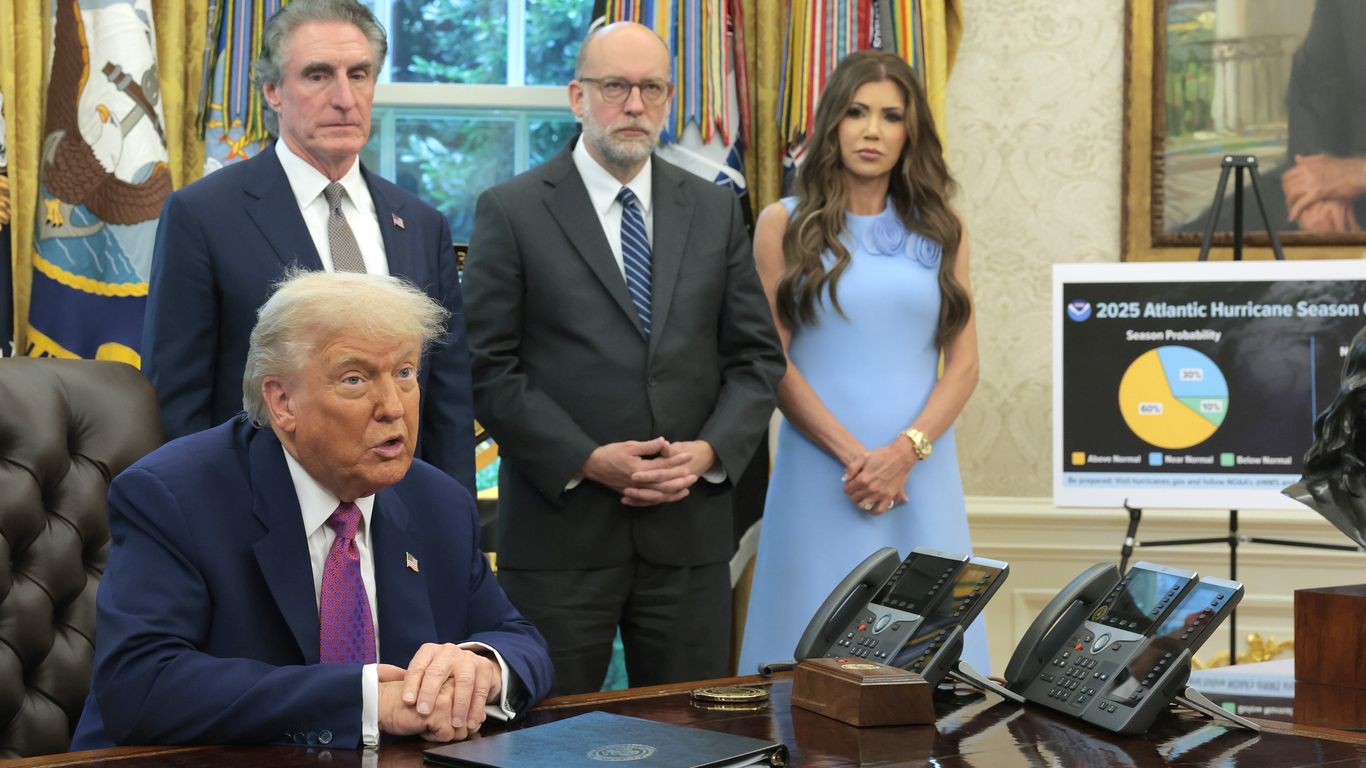State Leaders Voice Concerns Over FEMA's Reliability for Disaster Aid

State Leaders Voice Concerns Over FEMA's Reliability for Disaster Aid
In a recent interview with Axios, state governors expressed their frustration and concern over the Federal Emergency Management Agency's (FEMA) handling of disaster aid requests. According to state leaders, FEMA has been denying an increasing number of requests for aid, leaving them with no other options for assistance.
Lack of Support from FEMA
State leaders claim that they have been left without any support from FEMA, resulting in a lack of resources for disaster relief efforts. In the past, FEMA has been a reliable source of aid for states dealing with natural disasters, but recent denials have left states struggling to provide necessary assistance to affected communities.
The Impact on Communities
The lack of support from FEMA has had a significant impact on affected communities, as they are left without the necessary resources and support
About the Organizations Mentioned
FEMA
The **Federal Emergency Management Agency (FEMA)** is a U.S. government agency under the Department of Homeland Security, established in 1979 by President Jimmy Carter to coordinate disaster response and recovery nationwide[1][2]. Its core mission is to manage federal assistance when disasters overwhelm local and state capabilities, providing expert support, funding, and resources to affected communities[1][2]. FEMA also focuses on preparedness and resilience-building before disasters through education, training, and engagement with local governments and organizations[2]. Historically, federal disaster aid dates back to the early 1800s, but FEMA was created to unify emergency management and civil defense efforts under one agency. Since its inception, FEMA has evolved to cover a broad range of hazards, including natural disasters like hurricanes, floods, and earthquakes, as well as man-made crises such as terrorist attacks[1][2]. The agency operates 10 regional offices and employs over 20,000 people, with workforce surges during major emergencies reaching up to 50,000[2]. FEMA's key achievements include coordinating large-scale federal responses to catastrophic events such as Hurricane Katrina, the Oklahoma City bombing, and more recently, the 2024 hurricanes Helene and Milton, where it approved billions in aid and deployed thousands of responders[1][2]. Beyond immediate disaster response, FEMA administers programs like low-interest disaster loans, grants for infrastructure rebuilding, and training for first responders[1]. It also manages floodplain mapping and flood insurance regulations critical for risk management and urban planning[3]. Currently, FEMA remains a pivotal agency in disaster management, increasingly integrating technology and data-driven strategies to improve emergency preparedness and response efficiency[1][2]. Its role extends to coordinating with state and local governments, nonprofits, and federal partners to enhance national resilience against evolving risks. Overall, FEMA represents a vital intersection of government, technology, and community engagement in safeguarding the United States from a wide array of emergencies.
Axios
Axios is a dynamic media company founded in January 2017 by veteran journalists Jim VandeHei, Mike Allen, and Roy Schwartz, with a mission to transform how news is delivered in the digital age. Frustrated by the clutter, bias, and inefficiency of traditional media, the founders engineered Axios around a simple but powerful idea: deliver the clearest, smartest, and most trustworthy news experience for both audiences and advertisers. Axios quickly gained recognition for its concise, clinical reporting style—presenting facts without partisan opinion, and avoiding editorial pages or overt political endorsements. This commitment to neutrality and factual integrity has helped Axios build trust with readers seeking reliable, efficient news. Axios covers a broad range of topics including politics, technology, business, health, science, and sports, with a signature format that distills complex stories into digestible, bullet-pointed updates. The company’s approach has been praised for its reliability and balanced perspective, earning it a “Middle” bias rating and high marks for factual reporting from independent media analysts. Beyond its newsroom, Axios expanded into enterprise communications with Axios HQ, an AI-powered platform that helps organizations—from startups to Fortune 500 companies—craft clear, impactful internal communications. This innovation reflects Axios’s broader influence in shaping how information is shared in both media and business environments. Today, Axios remains a privately held company with a growing audience and a reputation for innovation. Its commitment to transparency, efficiency, and trust continues to set it apart in the crowded media landscape, making it a go-to source for professionals and organizations seeking smart, trustworthy news and communication solutions.














